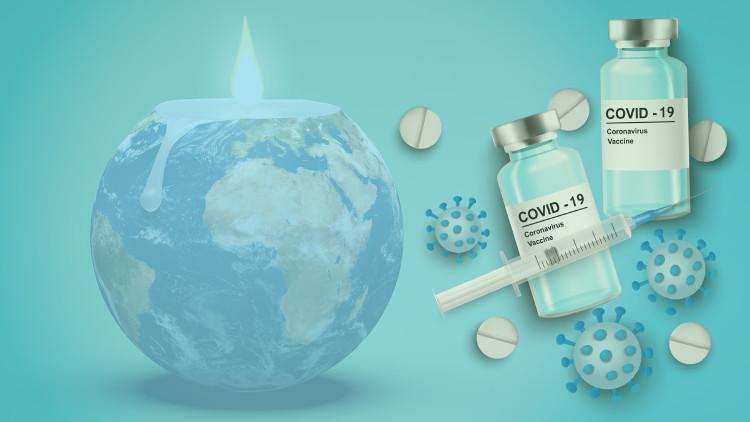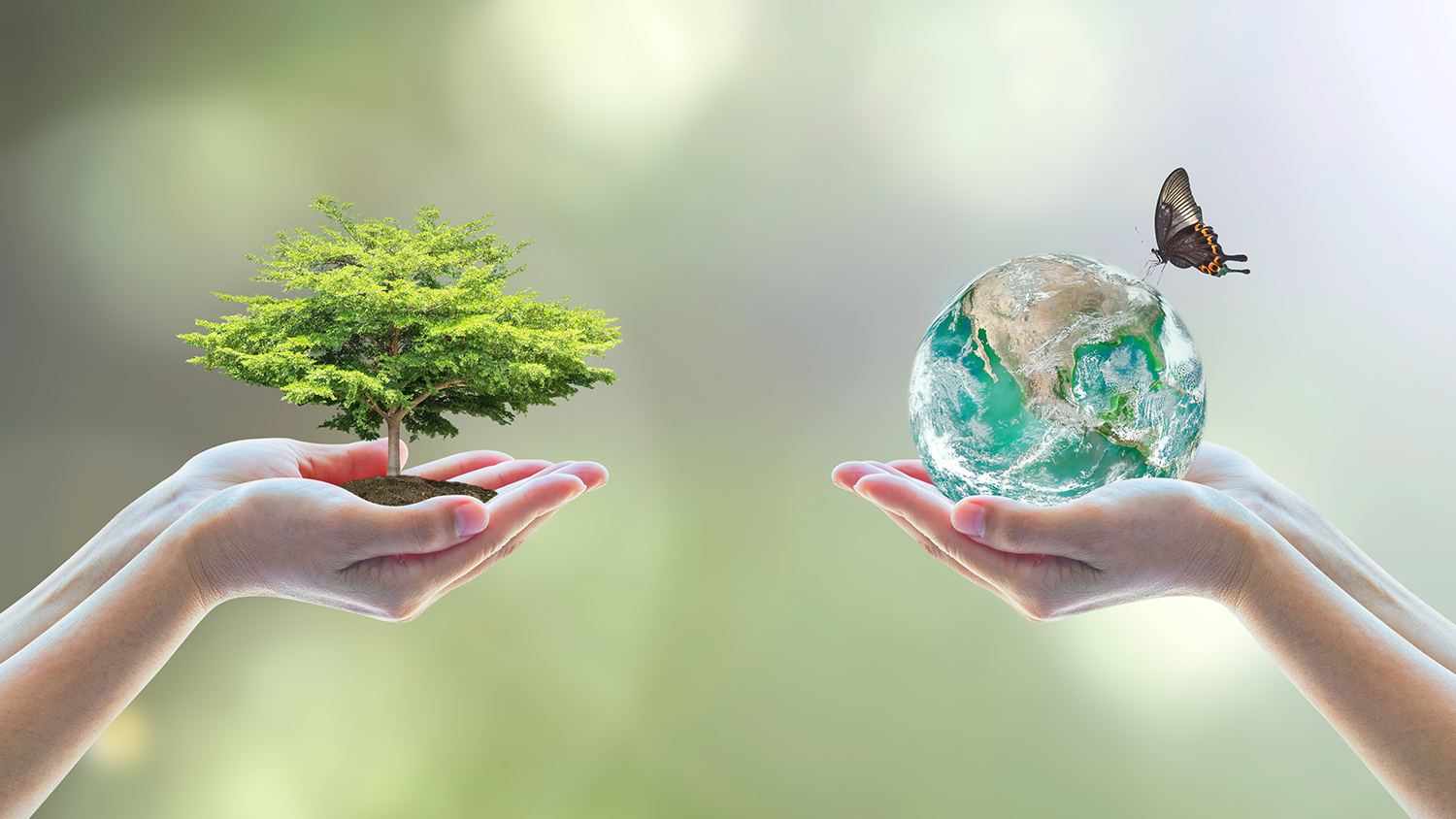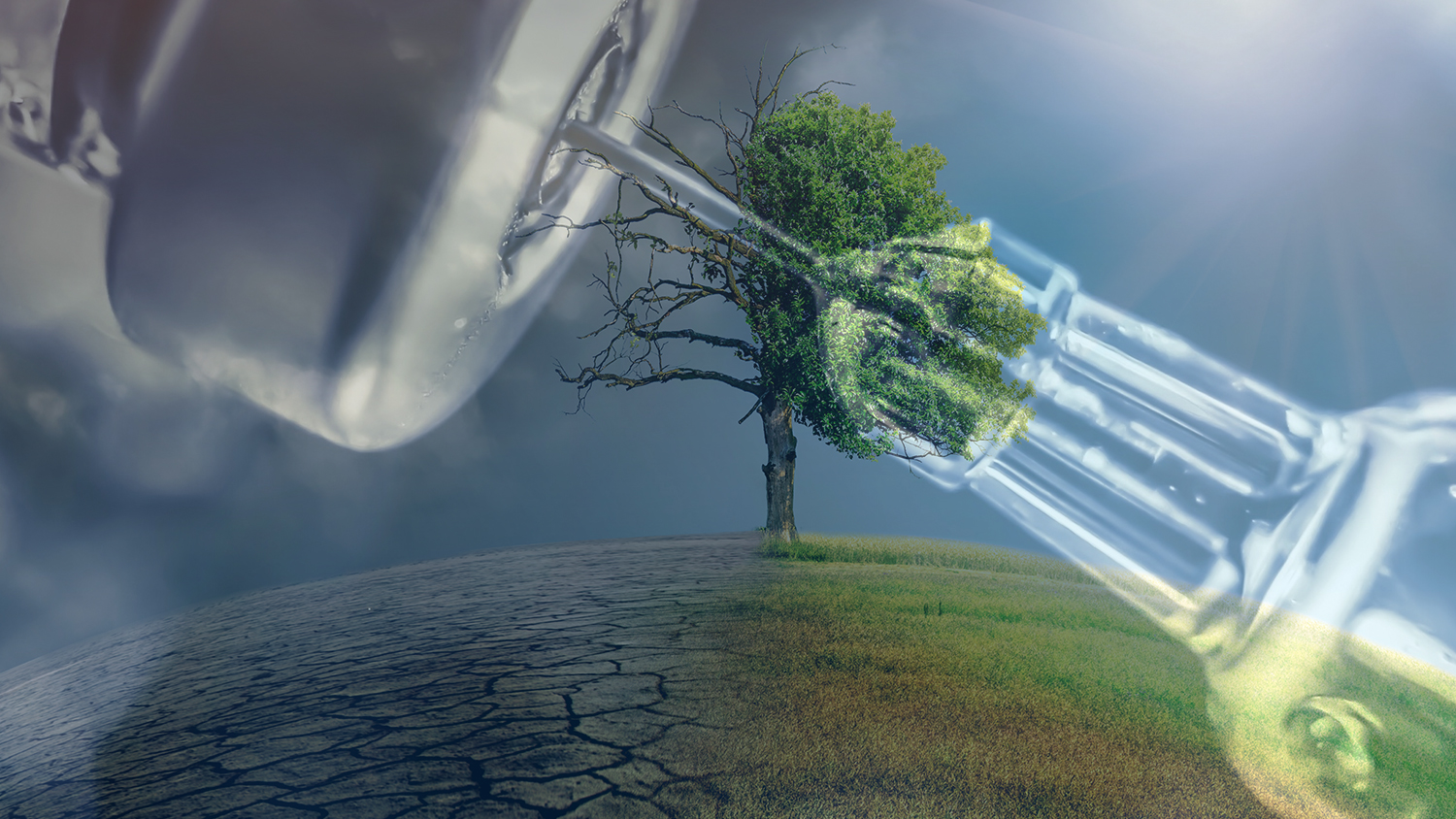‘I refuse to get vaccinated out of principle, because I’d rather work on a healthy future’

Why are there more and more people in society who are allergic to something? Why are there more and more tick outbreaks? Why is the number of people with autoimmune diseases rising? Why do more and more people get cancer? Why is infertility on the rise? Even our holy science offers no holistic explanation for this type of questions. It focuses mainly on treatment and cure, when it should be looking for the causes of those problems. After all, couldn’t it be that these illnesses and afflictions stem from a disbalance between man and nature?
The fact that we’ve lost that balance is something most people seem to agree with, especially at the university. Students and professors constantly focus on issues related to disbalance, such as the climate, biodiversity, and the growing gap between the rich and the poor. They have the necessary knowledge to make these connections and conclude that all these things are related. So, Covid might just be the result of the huge disbalance we’ve been causing in nature in the past few decades. In the past, poor people were the ones most affected by disbalance in nature, but, with Covid, nature has found a way to let the rich pay their share, too. In my view, this is a (final) warning.
Man versus Nature
Making the connection between systematic disbalance and Covid isn’t hard. Science teaches us, for example, that forests protect us from viruses that transfer from animals to humans. Currently, the Netherlands is supporting deforestation in Asia, South America and Africa thanks to the massive amounts of soy required by intensive livestock farming (link to article in Dutch), which also directly increases the risk of viruses – just look at bird flu.
In 2003, it seemed as though bird flu was going to be temporary, as it always disappeared eventually. 2021 was the first time the virus didn’t leave Europe. Bird flu can be transmitted to humans and has already killed multiple people in China. Moreover, the Netherlands has six times more poultry per acre of agricultural land than the national average in the EU. Professor Thijs Kuiken, who is cited in the source linked above, thinks that a drama like the one that happened in 2003 – when 30 million animals died as a result of the virus or from preventive culling – can only be avoided by decreasing the amount of poultry we have. We need a different system, then. In my view, that means seeing "Man as Nature", rather than "Man over Nature" or "Man versus Nature", as is currently the case with Covid.

Emphasis on growing economy
The "Man versus Nature" mentality, in my view, is the consequence of an economy that always has to keep on growing. The profitable merry-go-round never seems to stop, which comes as no surprise once you realise that KLM's Director of Public Affairs is also a parliamentarian for the VVD party (the biggest party in the Netherlands in number of Parliament seats). Suddenly, it makes sense that KLM receives billions of euros in financial support, while nothing is allocated to scaling up health care. In the meantime, Pfizer is making billions from Western governments fighting for their vaccines, while the company has been criticised for decades for their inhumane profit model. They’re holding on to their patents so that poor countries can’t recreate cheaper, generic versions of AIDS medication, for instance.
This exact same problem is at play now, with the Covid vaccines. This is not entirely unexpected, because big pharma has long been known for their greed and tax evasion. The pharmaceutical industry is also incredibly polluting (link to an advertorial by Roche, in Dutch), which also affects public health indirectly. In the future, we’ll need to find another profitable (medical) solution to that. Moreover, medicinal solutions are never without risk, even when they’ve been fully approved. That’s obvious when looking at this study on the medicines approved by the American registration authority Food and Drug Administration (FDA) between 1980 and 2009. Of the 740 different types of medication, 118 were taken off the market by late 2010 (15.9%). There are countless examples in the Netherlands, too (link to news article in Dutch).
But where Pfizer sees Covid as a great opportunity for more profit, us students can see it as a warning from nature, a chance to reflect on our current system. And where better to do so than at a university, a place with plenty of knowledge and a highly complex biodiversity of opinions and convictions? Let’s take stock ourselves.
Biodiversity
Agriculture shows us that monocultures lead to higher profits in the short term, but in the long term, it leads to plagues that we need battle with pesticides because the ecosystem becomes unbalanced without diversity. Every plague requires a different pesticide, which causes biodiversity to decrease even more, requiring even more pesticides, and so and so forth. Dutch parents are already being warned that the raisins they feed their children contain eleven types of pesticides – not so great for public health.
What if we apply this comparison to mass vaccination? There are already over 140,000 viruses in your intestines. In healthy people, all those viruses coexist in balance with their immune system, playing important roles that are more complex than previously assumed. Is it really so odd that we, the conscientious objectors to the vaccines, prefer to leave the biodiverse mix alone as much as possible? I fear that our biodiversity-destroying manoeuvres, such as vaccines, will later charge their price, meaning we'll have to fight those same symptoms again, increasing that price again, and so on and so forth. In renowned medical journals like Medisch Contact, people are saying that ‘boosters’ are just a short-term solution that we’ll have to repeat endlessly, with all the side effects that come with it (link to article in Dutch).

Long-term thinking
The conviction that I and a (growing) group of peers have is that this short-term thinking isn’t the way out, but rather the issue. There’s already scientific proof that the current Covid vaccines, because of their selection pressure, might increase the risk of selective mutations of the virus that target natural immunity. This could mean that the more people are vaccinated, the bigger the chance the vaccine becomes ineffective, offering less protection to the groups most at risk. Therefore, the 'vaccinate, vaccinate, vaccinate’ attitute may cause big issues for us soon.
Even outgoing Minister of Health, Hugo de Jonge, is finally letting go (link to news article in Dutch) of the idea of herd immunity against Covid. Then why not consider balance as much as possible, just to be sure? Why don’t we just vaccinate the most vulnerable groups and the people who want it, and then give young people who dare to do so the chance to get in touch with nature themselves? You can tell from the situation in Ireland, which has one of the highest vaccination percentages of Europe and simultaneously the highest infection rates, that the few extra percentage of vaccinated young people doesn't even make a difference in the short term, let alone the long term.
We acknowledge the dangers of Covid
That doesn’t mean I’m not aware of the dangers Covid poses. A friend who agrees with me saw her father be admitted to the hospital last week with Covid. He’s still fighting for his life in the intensive care unit. Despite her fear and sadness, she still prefers not to get vaccinated. Doesn’t that just show the strength of her convictions?
Put yourself in her shoes for a second. Your father’s in intensive care. You’re mourning for him and feeling insecure but still believe that this method of "injecting the issues away" will only cause more problems. In the meantime, you’re afraid that soon you will no longer be allowed to go to the university without a QR code, and that you’ll be isolated from all of your friends. You also feel powerless and dejected, because Prime Miniter Mark Rutte, like most other world leaders, has once again been a disappointment at the climate summit in Glasgow. Even so, Rutte still has enough power to keep you from exercising with your friends or visit your student association. All that despite the fact that last year has taught us that connection is the most important factor for our happiness. If even universities can’t provide a space for that anymore, if even they will start excluding people, then I understand why a significant share of the students are experiencing more mental health complaints because of Covid.
Cry of despair
This is a cry of despair, Utrecht University. The university is the perfect place to put down the "weapons" against the virus, as there’s a young, healthy mix of people walking around for whom the vaccine is of low use – for both their own health and the risk of infecting others. Let’s not waste energy on diversity-dismantling QR codes that destroy more than they yield. We need that energy for research on a new balance. Universities have the veto power to disregard the government's policies on Covid. Use that power and advocate for us. You’ve done it before throughout history, for instance by accepting the first female student in 1636, when it seemed that society wasn’t ready for it. Defend that local, safe place where we can have debates. The world needs critical people – a skill we’re taught at the university. This is your chance to show that you really care about progression and diversity.
Covid is the start of the environmental reckoning we’ll have to deal with in the coming years. It’s time to make a stand for the future. We no longer wish to participate in creating monocultures, no matter how hard that is under the pressure of capitalism. It’s your turn now.